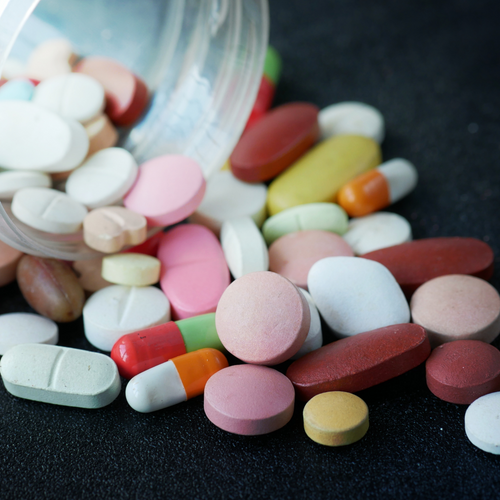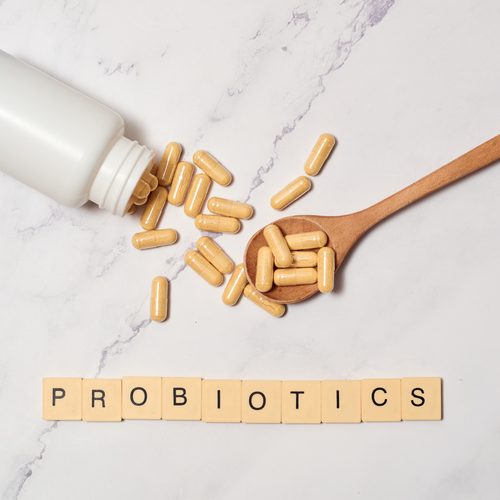What to remember:
- A swollen stomach can be due to an unbalanced lifestyle, a pathology, or food consumption and drug treatments.
- To effectively combat a bloated stomach, adapting your diet and staying sufficiently hydrated are the keys.
- Practicing moderate physical activity helps activate the digestive system
- Using plants (caraway, fennel) and charcoal can help reduce belly fat quickly.
The causes of a swollen stomach
A bloated belly can be the result of many things such as lifestyle, illness, dietary intake, medical treatments, and many more.
Diet and hydration
Diet is the most common cause of digestive problems, bloating , or abdominal swelling. If your diet is not suitable and is too rich in fermentable products, carbonated drinks, fats, and proteins, it can cause many problems, such as gas buildup . In addition, in cases of intolerance, this type of symptom is often caused by a reaction in the intestine and digestive system. These intolerances can include lactose and gluten.
However, these intolerances should not be confused with an allergy, which causes a more violent reaction from the body: release of histamine with specific symptoms such as redness, difficulty breathing, vomiting, diarrhea, and Quincke's edema. In order to determine the food origin of your symptoms, it is important to have a blood test to determine your food tolerance profile.
Lack of hydration can also be a cause. In fact, a lack of water intake is responsible for a slowdown in digestive transit, which can lead to constipation and therefore an increase in gas production.
Sedentary lifestyle
Lack of physical activity leads to a lack of stimulation of the body's muscles, particularly those located in the intestine. This leads to a decrease in intestinal motility, the natural movement that allows the bolus to move forward throughout the bowel movement. In addition, it leads to an increase in food fermentation in the intestine due to stagnation.
Medical issues and pathologies
Aside from lifestyle, a bloated stomach can be due to factors that unfortunately cannot be changed for some people. A medical condition or issue can cause this type of digestive discomfort due to inflammation, an imbalance in the intestinal microbiota, or a disruption in metabolism.
Here are some specific pathologies or conditions that can cause a swollen belly on a recurring basis:
- IBD (Inflammatory Bowel Disease)
- IBS (Irritable Bowel Syndrome)
- SIBO (small intestinal bacterial overgrowth)
- Gastritis
- Hiatal hernia
- Menstruation
- Menopause
- Endometriosis
A treatment
Certain drug treatments can also cause a swollen stomach, which is often due to weight gain:
- Corticosteroids
- Insulin
- Antidepressants, anxiolytics
- Beta-blockers
An unbalanced microbiota
The intestinal microbiota , composed of billions of microorganisms, is involved in many of the body's functions. Its imbalance, called dysbiosis , is the cause of digestive, immune, but also metabolic and cerebral disorders. Indeed, our current lifestyles can cause a deficit in good bacteria, called probiotics, and give way to intestinal porosity .
Stress
Excessive physiological stress causes an alteration of the gut-brain axis. This can be achieved through changes in gastrointestinal motility and secretions, increased secretions of pro-inflammatory proteins, and an imbalance in the microbiota.
Our tips for reducing belly fat quickly
#1 - Adapt your diet and hydration
Changing your diet to promote better digestive comfort is the first line of defense against bloating and a swollen stomach.
Indeed, favor lighter meals by limiting the consumption of animal proteins, fermentable foods rich in FODMAPs , raw vegetables and meals rich in fat. For deeper and more lasting effects, it is also possible to consume foods rich in probiotics and good for your intestinal flora in order to balance it and promote better digestive transit.
Likewise, maintaining a proper hydration level with 1.5L of water per day helps strengthen the body's functions and support optimal intestinal transit. To vary the pleasures, it is possible to flavor your water (lemon, cucumber, strawberry, etc.) or drink tea, coffee and herbal tea in addition.
#2 - Take care of your stomach through massages and breathing
Mechanically activating transit can also help combat swelling and bloating. Abdominal massages are therefore a real ally in achieving a flat and soothed stomach.
#3 - Practice physical activity
As explained above, moderate physical or sporting activity helps activate the digestive system. In fact, the intestinal machinery is mainly made up of muscle tissue, which allows the food bolus to move forward throughout the digestive process to allow for good absorption of food and rapid elimination. Walking for 30 minutes a day already helps to get the muscular system going. In addition, strengthening your abdominal muscles with exercises such as core strengthening can increase intra-abdominal pressure and thus combat a bloated stomach.
#4 - Use herbal medicine
Certain plants and spices have real benefits for digestive transit. Indeed, carminative spices such as caraway, cumin, fennel, ginger, peppermint, star anise, and thyme help combat gas buildup.
Consuming these spices through food supplements, infusions or essential oils helps to quickly reduce stomach bloating.
Likewise, vegetable charcoal is an excellent antispasmodic which promotes digestive comfort.
Sources :
[1] Konturek, PC, Brzozowski, T., & Konturek, SJ (2011). Stress and the gut: pathophysiology, clinical consequences, diagnostic approach and treatment options. Journal of physiology and pharmacology: an official journal of the Polish Physiological Society, 62(6), 591–599.
[2] Pellissier, S., & Bonaz, B. (2017). The Place of Stress and Emotions in the Irritable Bowel Syndrome. Vitamins and hormones, 103, 327–354. https://doi.org/10.1016/bs.vh.2016.09.005
[3] Lacy, BE, Gabbard, SL, & Crowell, MD (2011). Pathophysiology, evaluation, and treatment of bloating: hope, hype, or hot air?. Gastroenterology & hepatology, 7(11), 729–739.
[4] Buentzel, S.K., Huebner, J., Buentzel, J., & Micke, O. (2022). Medicinal Plants Used for Abdominal Discomfort - Information from Cancer Patients and Medical Students. In vivo (Athens, Greece), 36(5), 2422–2433. https://doi.org/10.21873/invivo.12976













